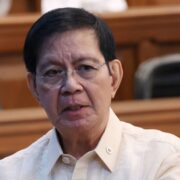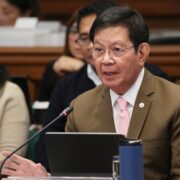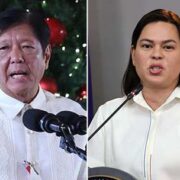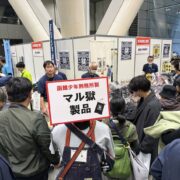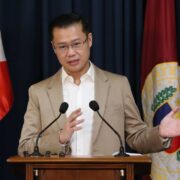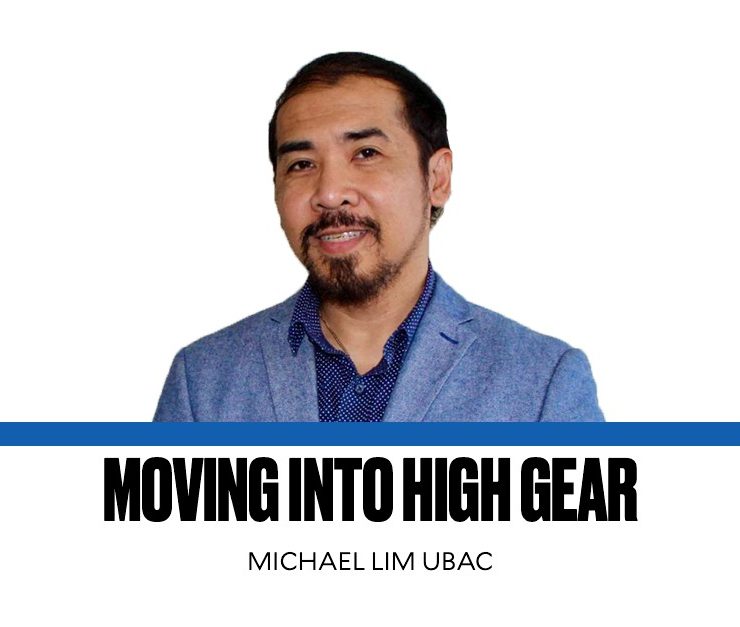What’s in a handshake? It’s everything

President Marcos’ surprise move to shake hands with Chinese President Xi Jinping at the close of the Asia-Pacific Economic Cooperation (Apec) Leaders’ Meeting in Gyeongju, South Korea, on Saturday could be seen as a diplomatic gambit.
That moment, captured on camera, was pregnant with meaning (see “Amid sea row, Marcos extends hand to Xi,” 11/2/25). Recognizing its newsworthiness, the Inquirer chose it as the banner photo for its Sunday issue.
The novelty of the handshake lies in the context in which it was done.
By stepping up to approach the usually heavily guarded Xi to congratulate him on China’s chairmanship of the Apec forum in 2026, was Mr. Marcos setting the stage for an imminent reframing of Philippine relations with China? This question is relevant due to the ongoing hostility between Manila and Beijing, stemming from the longstanding maritime dispute in the West Philippine Sea (WPS).
Whatever motivations he might have, Mr. Marcos displayed true statesmanship as the leader of the nation hosting in 2026 the Association of Southeast Asian Nations Summit and related meetings that include the leaders’ summit of the Asean Plus Three (Asean plus China, Japan, and South Korea).
Depending on confidence-building measures that could ensue from Mr. Marcos’ friendly gesture toward Xi, next year’s Asean Summit could shape up to be a very consequential one—if Xi attends the Asean Plus Three meeting in Manila, and more importantly, agrees to the adoption of the code of conduct in the South China Sea between China and other claimant nations.
The Inquirer hit the nail on the head with the story that accompanied the photo, summing up the full import of what Mr. Marcos achieved diplomatically, however fleeting the handshake was: “But it was the President, who often complains about Chinese aggressive actions in the West Philippine Sea, who initiated the universal gesture of peace and friendship, which surprised the Chinese leader unaccustomed to unchoreographed actions.”
Art of diplomacy. Bilateral relations between sovereign nations are anchored in respect and trust. In global affairs, when one side offers the olive branch, it is often interpreted as a friendly gesture that bodes well for dialogue. Diplomacy can open doors for reframing the engagement of two assertive sovereign nations beyond the confines of the volatile WPS, regardless of their asymmetrical relationships on the economic, military, and technological fronts.
Mr. Marcos himself viewed the opportunity to speak face-to-face with Xi as “just common courtesy” to a fellow leader, and therefore, we should not read too much into it. But by showing humility instead of hostility toward China, despite its continued harassment of Filipino fishers in the WPS, Mr. Marcos demonstrated political maturity that won’t escape the keen perception of Xi and his closest advisers.
Diplomats view such gestures as a spring of hope, as our President appears to be on a mission to find pathways for peace in a volatile region, where the emergence of China as an economic and technological powerhouse is impacting global geopolitics.
Nonconfrontational. The President’s nonconfrontational approach is a personal trait that officials who have worked with him can readily attest to. Recall what he declared last July at the White House: “Our foreign policy is an independent one, and we are essentially concerned with the defense of our territory and our sovereign rights …. Again, our strongest partner has been the United States, but we are trying to form coalitions and multilateral relations so that those like-minded nations who share the same values would hew to international law.”
In response, US President Donald Trump said he didn’t mind if Mr. Marcos got along with China “because we’re getting along with China very well … He has to do what’s right for his country.” Apparently returning the favor, Mr. Marcos praised both Trump and Xi for agreeing to “pause” their tit-for-tat tariff increases when they met on the sidelines of the Apec summit last week.
Seen through the lens of these recent events, the handshake was only the overt manifestation of Mr. Marcos’ inner desire for peace. In public and even privately, Mr. Marcos has been vocal about the need to resolve issues peacefully, without, however, sacrificing our country’s territorial integrity (unlike his predecessor). Talking peace with China and asserting our national sovereignty are not mutually exclusive.
We hope that Marcos’ impromptu gesture will lead to more constructive dialogues that reduce confrontations on the high seas and ultimately persuade Beijing that the code of conduct can calm the restive waters, rather than fueling the potential for a shooting war in this Asian century. The prospect of a thaw in relations appears promising because Foreign Secretary Tess Lazaro, a longtime reliable hand in foreign affairs, is advising the President on the China issue.
—————-
lim.mike04@gmail.com


